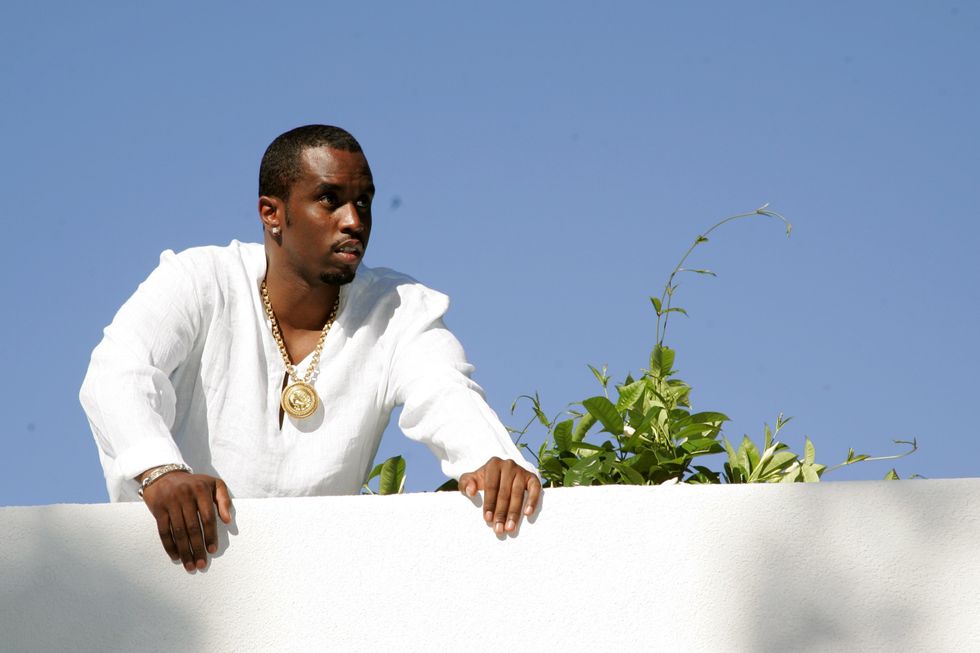Diwali in southern India is a one-day celebration called Naraka Chaturdashi, occurring a day ahead of Diwali. Unlike the five-day festivities in the north, it signifies Krishna's victory over Narakasura. The day starts with an early morning oil bath, followed by elders applying oil to the heads of younger family members. Rituals include consuming lehyam, cleaning homes with kolam designs, and offering betel leaves, nuts, flowers, and more to the gods. Sweets are enjoyed, and morning fireworks enhance the festive mood.
In Andhra Pradesh and Telangana, the day represents Lord Sathyabama's triumph over Narakasura and marks the closing of accounts for agrarian businesses. Goddess Lakshmi is worshipped in the morning. In Kerala, Diwali is a modest celebration, with some opting for an oil bath and a special meal. In the northern part of the state, lamps are lit, while from Alappuzha to Thiruvananthapuram, the evening is characterised by lighting lamps and bursting crackers. Let’s delve into the vibrant festivities of some states in South India.
Diwali festivities in Tamil Nadu: A celebration of lights and traditions
Diwali, the festival of lights, holds a special place in the hearts of Tamilians. Celebrated in the month of Aipasi (Thula month), coinciding with the 'Naraka Chaturdasi' thithi, preceding amavasai, Diwali is a time for purification, illumination, and the triumph of good over evil.
Preparations begin the day before
The anticipation for Diwali begins a day before, with meticulous preparations. The oven, considered sacred during this auspicious occasion, is cleaned, smeared with lime, and adorned with four or five kumkum dots. It is then filled with water, ready for the traditional oil bath the next morning. The house is transformed into a haven of vibrant colours and auspicious designs. Kolams, intricate patterns made with kavi (red oxide), adorn the entrance and hallways, welcoming the blessings of the divine.
The puja room, the heart of the home's spiritual essence, is adorned with betel leaves, betel nuts, plantain fruits, flowers, sandal paste, kumkum, gingelly oil, turmeric powder, and scented powder. In a special plate - crackers and new clothes are placed, awaiting the day's festivities.
A ritualistic bath and awakening
Diwali dawns with the promise of new beginnings. The day begins with an oil bath, a practice deeply ingrained in Tamilian culture. The belief is that taking an oil bath before sunrise on Diwali is equivalent to bathing in the holy Ganges, cleansing oneself of all impurities and ushering in a wave of positivity. Elders in the house lovingly apply gingelly oil to the heads of the younger members, symbolising their blessings and guidance.
A Tanjore tradition: Diwali lehyam
For those hailing from the ancient city of Tanjore, the tradition of indulging in deepavali lehyam, an ayurvedic paste, after the oil bath adds a touch of wellness to the ritual. This medicinal paste is believed to promote health and well-being, setting the tone for a day filled with joy and auspiciousness.
Sweet indulgences and festive fare
After the bath, the aroma of freshly prepared delicacies fills the air. Ukkarai, velli appam, idly, chutneys, sambhar, and omapudi are among the delectable treats that grace the dining table, setting the stage for a feast filled with family bonding and shared moments of happiness. For lunch, jangri, pathir peni, or a variety of poli bring a touch of warmth and comfort.
Crackers and the vibrant night sky
The burst of firecrackers marks the commencement of the evening's vibrant celebration. The sky comes alive with a symphony of colours and sounds, echoing the triumph of good over evil. Meanwhile, the kuthu vilaku (oil lamp) flickers in the puja room, illuminating the space with its radiance.
Mats and wooden planks for family gatherings
Mats or wooden planks are placed facing east, creating a sacred space for the family to gather for the puja, a ritualistic offering of gratitude to the divine. After the offering, a plantain fruit is presented to each member of the family, followed by betel leaves and betel nuts, symbols of prosperity and abundance.
For those who observe 'pithru tharpanam,' a ritual to honour their ancestors, a second bath is undertaken after the puja. The tharpanam is performed with utmost reverence, seeking the blessings of their departed loved ones. To mark this solemn occasion, they refrain from consuming rice at night.
Diwali: A celebration of unity and hope
Diwali in Tamil Nadu is not merely a festival; it is an embodiment of the values that define the Tamil culture – purity, resilience, and the power of light to dispel darkness. It is a time to strengthen bonds, express gratitude, and embrace the blessings of the divine. As the diyas flicker and the firecrackers ignite, the spirit of Diwali spreads throughout the land, illuminating the hearts of everyone with hope, joy, and the promise of a brighter future.
Diwali in Andhra Pradesh: A tapestry of tradition and joy
As the enchanting aroma of incense fills the air, the vibrant streets of Andhra Pradesh transform into a mesmerising spectacle, adorned with intricate kolam patterns, their vibrant colours mirroring the spirit of Diwali.
This grand celebration, deeply rooted in the ancient traditions of the state, brings together families, communities, and the entire state in a harmonious symphony of joy, laughter, and devotion.
A celebration of Lakshmi: Goddess of wealth and prosperity
At the heart of Diwali lies the veneration of Lakshmi, the divine embodiment of wealth, prosperity, and abundance. Homes are meticulously cleansed and decorated with glittering diyas, small clay lamps that symbolise the triumph of light over darkness. The sweet aroma of freshly prepared sweets fills the air, beckoning devotees to indulge in the culinary delights of the festival.
Early morning rituals and the power of purification
In a departure from the northern tradition of celebrating Diwali in the evening, Andhra Pradesh embraces the early morning hours with fervour. Before sunrise, families gather for the sacred ritual of oil bath, believed to cleanse the body and soul, ushering in a new beginning. In Andhra Pradesh too elders apply oil on the heads of younger members, symbolising the blessings and guidance they impart.
Festive feasts and the sweet taste of tradition
The culinary delights of Diwali reflect the rich culinary heritage of the state. The aroma of delectable dishes fills the air. Uruli, a savory steamed rice pancake, is a must-try, while idly and chutneys add a touch of tangy delight. The festival is incomplete without the indulgence in a variety of sweets.
The Triumph of good over evil: The story behind Diwali
The stories behind Diwali are as diverse as the traditions that define it. One of the most popular tales narrates the victory of Lord Krishna over the demon Narakasura. The triumph of good over evil, signified by the illumination of diyas, symbolises the banishment of darkness and the ushering in of hope and prosperity.
Paper decorations and buffalo baths: A fusion of customs
In Hyderabad, a unique tradition unfolds on Diwali. Paper figures are meticulously crafted and adorned with vibrant hues, symbolising the triumph of life over death. These figures, called Golu Dolls, adorn homes and temples, adding a touch of whimsy and elegance to the festivities.
A shopping spree: Celebrating the spirit of abundance
The weeks leading up to Diwali witness a surge in shopping activity, with people flocking to markets and emporiums to purchase new clothes, jewellery, and household items. The vibrant colours and festive ambiance create an atmosphere of exuberance and anticipation.
Diwali: A festival of messages and reminders
Beyond the vibrant celebrations and joyous festivities, Diwali carries profound messages that resonate deeply with the people of Andhra Pradesh. It is a reminder of the importance of family, community, and the enduring bonds that tie them together. It is a celebration of the triumph of good over evil, light over darkness, and the enduring power of hope and faith.
Diwali: The radiant festival of lights in Karnataka
Karnataka, a land steeped in ancient traditions and vibrant culture, embraces Diwali, the Festival of Lights, with an unparalleled fervour. This auspicious occasion, marking the triumph of good over evil and the victory of light over darkness, has been celebrated for centuries, captivating the hearts and minds of the people.
A legend of triumph
The story that resonates deeply within Karnataka's soul is the tale of Emperor Bali, who had attained immense power, threatening the harmony of the universe. To restore balance, Lord Vishnu, in his dwarfish Vamana avatar, approached Bali and requested alms, asking for the amount of land that his three footsteps could encompass.
Bali, adhering to the sacred tradition of respecting Brahmins, readily agreed, believing it to be a trivial request.
As Bali granted the boon, Lord Vishnu transformed into his majestic form, covering the heavens with one step and the earth with another.
He then asked for the third step, and Bali, humbled by the deity's grandeur, offered his own head. Lord Vishnu accepted, marking the defeat of Bali's ego and the restoration of cosmic balance. This triumph is commemorated on the day of the new moon (Amavasya) in the month of Ashwin (October-November), ushering in the month of Kartik.
A celebration of light and spirit
Diwali in Karnataka is a symphony of lights, colours, and festivities. Every courtyard, every street, and every home is transformed into a dazzling spectacle of illumination, with diyas, or lamps, adorning every corner, symbolising the victory of light over darkness. The air is filled with the exuberance of bursting firecrackers, creating a symphony of colours and sounds that resonate with the joyous spirit of the festival.
Sweet delicacies, new attire, and the warmth of family gatherings add to the festive charm. The celebration extends well into the early morning and late at night, as the darkness serves as a canvas for the vibrant lights and firecrackers. People rise early, embracing the spirit of the celebrations, and retire late into the night.
A festival of hope and prosperity
Diwali is not merely a celebration of light and victory; it is also a deep-rooted belief in prosperity and good fortune. Families offer prayers to Lakshmi, the goddess of wealth, seeking her blessings for abundance and prosperity. They cleanse their homes, symbolising the removal of negativity and the ushering in of positive energy.
As the day unfolds, people engage in acts of charity and generosity, distributing sweets, food, and gifts to those in need, extending the spirit of Diwali beyond their immediate circles. The emphasis on sharing and compassion reinforces the values of community and interdependence.
A festival that binds hearts
Diwali in Karnataka transcends religious and cultural boundaries, uniting people in a shared celebration of joy, unity, and the essence of life. It is a time for reflection, gratitude, and renewal, reminding us of the power of light to dispel darkness and the enduring strength of human spirit. As the dazzling lights of Diwali illuminate the night sky, they also illuminate the hearts of the people, fostering hope, prosperity, and the enduring spirit of Karnataka.
Diwali, in its myriad forms, showcases India’s cultural kaleidoscope. It’s not just a festival; it's an embodiment of unity in diversity, a celebration that honours the richness of traditions and the spirit of togetherness. Across the Gujarati, Punjabi, and South Indian communities, Diwali echoes the age-old belief in the triumph of light over darkness, spreading joy and unity, casting a radiant glow that transcends cultural boundaries.






 Apsana Begum
Apsana Begum









 Diddy trial jury raises alarm over juror and demands key witness testimoniesGetty Images
Diddy trial jury raises alarm over juror and demands key witness testimoniesGetty Images  Marc Agnifilo, attorney for Sean "Diddy" Combs, arrives at federal courtGetty Images
Marc Agnifilo, attorney for Sean "Diddy" Combs, arrives at federal courtGetty Images  Sean 'Puffy' Combs arrives at Manhattan Supreme Court in 2001Getty Images
Sean 'Puffy' Combs arrives at Manhattan Supreme Court in 2001Getty Images

